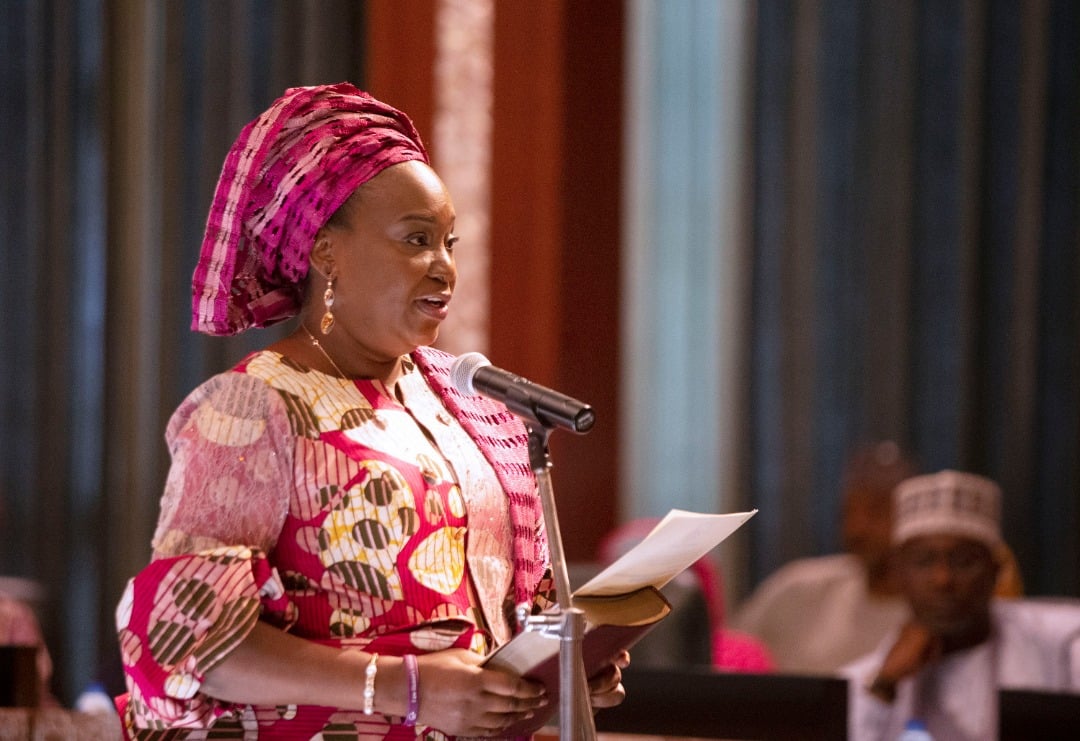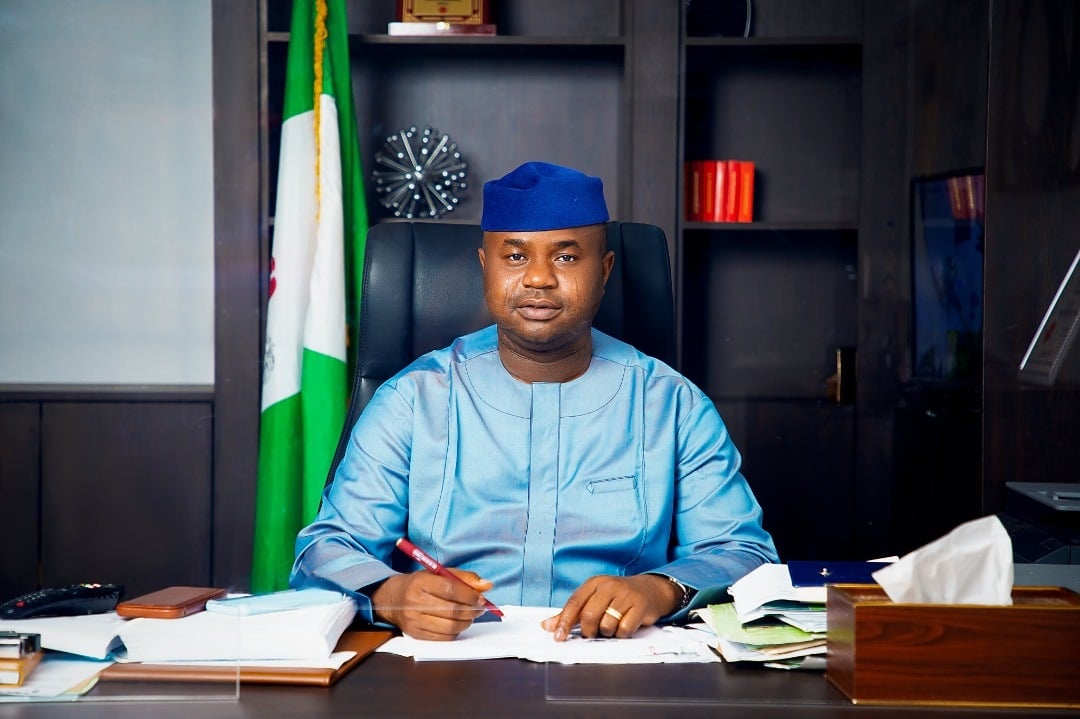Folasade Yemi-Esan, head of the civil service of the federation
It was like magic. In 2006, my wife enrolled for a post-graduate programme in the UK. After getting accommodation, she was informed by the landlady that as a student, she was entitled to exemption from council tax. All she needed was to notify the authorities on her status. My wife and I went to the council office and were attended to as soon as we arrived. We explained what we wanted and we were asked to submit a copy of her admission letter. Two days later, we got a mail approving the exemption. There was nothing like “oga is not on seat” or “we can’t locate your file”. I understand the process is now automated — you submit the application online and get a response within 48 hours.
Mrs Folasade Yemi-Esan, the head of the civil service of the Nigerian federation, has just declared that Nigeria has the “world’s best civil service”. Please raise your hand if this statement sums up your experience of our civil service. I can’t see any hands. Maybe I am not communicating. Let me reframe: if your experience of our civil service — local, state, federal — has been as smooth as the UK instance I just shared, kindly raise your hand. If you’ve ever gone to a government office to apply for building approval or renew a vehicle licence and you were treated with respect and never had to pay above the official fee, please let me see your hand. No hands up yet? Well, I give up at this stage.
Yemi-Esan, after being a civil servant for decades, had this to say about the dire situation towards the end of her career: “You know I am always proud of civil and public servants because Nigeria has the best civil service in the world and I can say that confidently anywhere.” To be fair to her, she was speaking during a sporting event organised for civil/public servants as part of activities marking the 2024 Civil Service Week, so I assume she was displaying sportsmanship — or, rather, sportswomanship. She has to be kind to her colleagues, sure. She cannot look them in the eye and say “most of you are lazy, greedy, incompetent, truants and criminals”. That would not be nice.
But what is life without ironies? The same Yemi-Esan had this to say about the “world’s best civil service” thereafter: “Recently, a circular went out to all ministries, departments, and agencies (MDAs) stating that they should do a physical headcount (of staff). That means everybody on the nominal roll that is receiving salaries should appear physically, and the names of those who did not show up for the exercise should be forwarded. In the circular, I cautioned that permanent secretaries and CEOs that give wrong information will be held liable if anything is discovered outside of the information that was given.” Can you see? Even the most senior civil servants had to be forewarned!
Advertisement
Yemi-Esan said it was discovered after the exercise that many workers in the “world’s best civil service” who had been receiving salaries all along had actually relocated abroad. The system ensured they were still being paid for doing nothing. Let me quote her properly: “I actually called one of the heads of the agencies and queried why there is such a large number of people earning salaries and are not on their desks. I asked how the agency came about such a huge number of the purported workers.” She said the head an agency told her she ain’t seen nothing yet — that some of the ghost workers flew in from the UK for the verification exercise. Welcome to the world’s best civil service.
There is so much to unpack about the Nigerian tragedy from Yemi-Esan’s narration. I don’t know where to start from. But given that she has been head of service for over four years, I should start from her. How did she arrive at the conclusion that we have the world’s best civil service, not even one of the best, which means every other country is below us? Can she show us her workings? Can we see her marking scheme? What are the service standards by which she did her appraisal and reached her conclusion? This is very important so that we can be on the same page with her. Her standards must be so low and warped. That is something to worry about. I will return to this shortly.
Also, she was gleefully telling us the unflattering story of the stinking rot in the civil service under her watch — without flinching. Imagine that in the “world’s best civil service”, people are living abroad and collecting salaries in Nigeria and the head of the civil service was not aware. The heads of agencies were even regaling her with more scintillating stories for effect. There is no hint that they were queried for negligence. If it was their personal companies, would they be paying workers who had relocated abroad? The truants had superiors they were reporting to and we need to know what they did about the truancy. We are yet to be told anyone has been held responsible for the fraud.
Advertisement
I would really like to know what Yemi-Esan has contributed to the making of the “world’s best civil service” as she prepares to bow out. She spoke about building a wellness centre to enhance productivity — and I don’t have anything against that. But has it really enhanced their productivity? That is where I would like to see the results of monitoring and evaluation (M&E). My biggest concern about the Nigerian civil service is productivity which I measure mainly in terms of efficiency. Can Yemi-Esan put her hand on her chest and say that the Nigerian civil service is more efficient today than it was when she took over as acting head in September 2019? That would be something.
To be clear, I am not blaming Yemi-Esan for all that is wrong with the civil service. That would be very unfair. Civil service in states and local governments is not any better. I am only questioning her judgment. When you have interacted with the civil service in advanced societies, you have to question our understanding of standards. We do not appear to know the kind of civil service we want. That is why Yemi-Esan thinks this is the best in the world. Civil service is the engine, or brainbox, of government. This is where policies are designed and implemented. This is where service delivery connects the state and the society. If we don’t get it right, we are going nowhere.
In serious countries, the civil service is probably the most respected institution. When we talk about “state capacity”, it is the civil service we are referring to — in the main. Recruitment and promotion standards are tough because of the high barriers. In countries like the UK, India and Japan, it is first-class brains that populate the civil service. Professionalism and high ethical standards are an article of faith. In Nigeria, recruitment into the civil service is more of welfare scheme where we dump those who cannot find their preferred choice of employment. Slots are sold to hustlers or allocated to politicians, so we usually end up with many civil servants who don’t give a hoot about their jobs.
Let me apply caution here. I am sounding like I do not have any regard for our civil service. Far from it. I have interacted with many decent civil servants who are passionate about their job. The problem is that they are so few they are insignificant. The civil service is dominated by buccaneers who will not lift a finger if they are not going to get pecuniary gains. They are the ones who enable politicians and political appointees to loot the system — and they do this mainly to help themselves, not that they love the politicians that much. Many political office holders will tell you that it is civil servants that show them how to cheat the system. How can Nigeria be great if they don’t change their ways?
Advertisement
Finally, when Yemi-Esan spoke about the truants collecting salaries for doing nothing, I was listening intently for two things: one, that all involved in the cover-up have been identified and punished; two, that she has introduced fool-proof measures to make sure this will not happen again. On the first one, she was completely silent. She gets on very well with the negligent MDAs heads, apparently. On the second one, it would appear the strategy is to be doing physical verification every four years and, thereafter, regaling the public with the tales of the truants. That is not good enough. If a problem has been identified, the logical next step should be to design a clear strategy to reduce or eliminate it.
Meanwhile, when we discuss the problems of Nigeria and lament that we are stuck in underdevelopment, the same cheating and negligent civil servants will open their mouths. To them, collecting salaries for doing nothing is not a crime. Aiding and abetting fraudulent payment of salaries is not a big deal. Fraud is not corruption. Stealing is not corruption. It is smartness. “After all, our Ogas are stealing billions,” they will say. Until we recognise our individual roles in the underdevelopment of Nigeria, we cannot begin to have a useful conversation on how to end this rot and move towards greatness. We will keep talking down on Nigeria as if we are blameless.
President Bola Tinubu spat fire on the development. “We must ensure those responsible are held accountable and restitution is made. The culprits must be made to refund the money they have fraudulently collected. Their supervisors and department heads must also be punished for aiding and abetting the fraud under their watch.” Music to my ears. Unfortunately, the story ends there. It is just the way we are wired in Nigeria. Our instinct is to show initial outrage and normal service resumes shortly after. Do we still remember the drama of Mr Kemebradikumo Pondei, then acting MD of the Niger Delta Development Commission (NDDC), “passing out” at a senate hearing in July 2020?
Remarkably, checkmating truancy in civil service is not as complicated as making banga soup. A simple electronic clock-in and clock-out system can help. Improving efficiency will be easier under a system that has a working M&E mechanism — implemented with deliverables clearly written on paper. Introducing timelines to process documents and time stamps on the documents as they move from desk to desk will help monitor efficiency to a large extent. But, most importantly, how and who do we recruit into service? The rot starts from there. The world’s best civil services recruit the best brains. In Nigeria, recruitment is a welfare scheme. You can’t build the best civil service that way.
Advertisement
AND FOUR OTHER THINGS…
RIVERS TO CROSS
The war between Governor Simi Fubara of Rivers state and Chief Nyesom Wike, his godfather-turned-archenemy, has reached a stage that should worry us all. It is easy to treat it as a Rivers problem and look away or watch it like a Netflix series, but — as we saw with Niger Delta militancy and Boko Haram insurgency — sociopolitical instability in any part of Nigeria is a threat to not just the national economy but also the overall security health of the country. I think violent godfather vs godfather face-offs started with the Dr Olusola Saraki vs Alhaji Adamu Attah bout-up in Kwara in 1983 but it is now commonplace. All good people must step in and stem the slide in Rivers. Ominous.
Advertisement
SUDDEN DEATHS
Mr Essien Etop Andrew, deputy comptroller in charge of revenue at the Nigeria Customs Service (NCS), slumped and died while fielding questions from the house of reps committee on public account on Tuesday. This is yet another death of a uniformed public officer that made the news — not just because of his position but it also happened in the public glare. While I pray that Andrew’s family be comforted, I know that the tendency is to blame sudden deaths on supernatural forces. Nigerians, irrespective of status, are slumping to their death so often. Doctors will say most sudden deaths are avoidable, just that we ignore the warning signals. We really need to watch and act. Sad.
Advertisement
RECKLESS RUTO
In an attempt to cut the country’s debt-to-revenue burden, President William Ruto of Kenya recently proposed tax rises. Ruto initially wanted to tax bread — perhaps the daftest thing any president has ever tried in human history. For crying out loud, who taxes bread? Is that not a case of “village people” having the upper hand over Ruto? Despite a climbdown — the legislators passed a modified bill — the initial version had generated so much bad blood amid economic hardship that it created a momentum that led to riots and 22 deaths. There is a science about resistance to reform and reading the room that leaders must understand. Hope President Bola Tinubu got the memo? Combustible.
Advertisement
NO COMMENT
Are you following the row between the Police Service Commission (PSC) and the Nigeria Police Force (NPF) over the recruitment of 10,000 constables? The war over who has the statutory power to recruit between PSC and NPF started under President Muhammadu Buhari and even ended up in the Supreme Court, which ruled in favour of the commission. But that has not solved the problem. Comedy and tragedy had a get-together recently when the police rejected the final list, alleging the disappearance of the names of some successful candidates, claiming — now, you won’t believe this — that the exercise was fraught with “corruption”. Pot and kettle easily come to mind. Wonderful.
Add a comment











